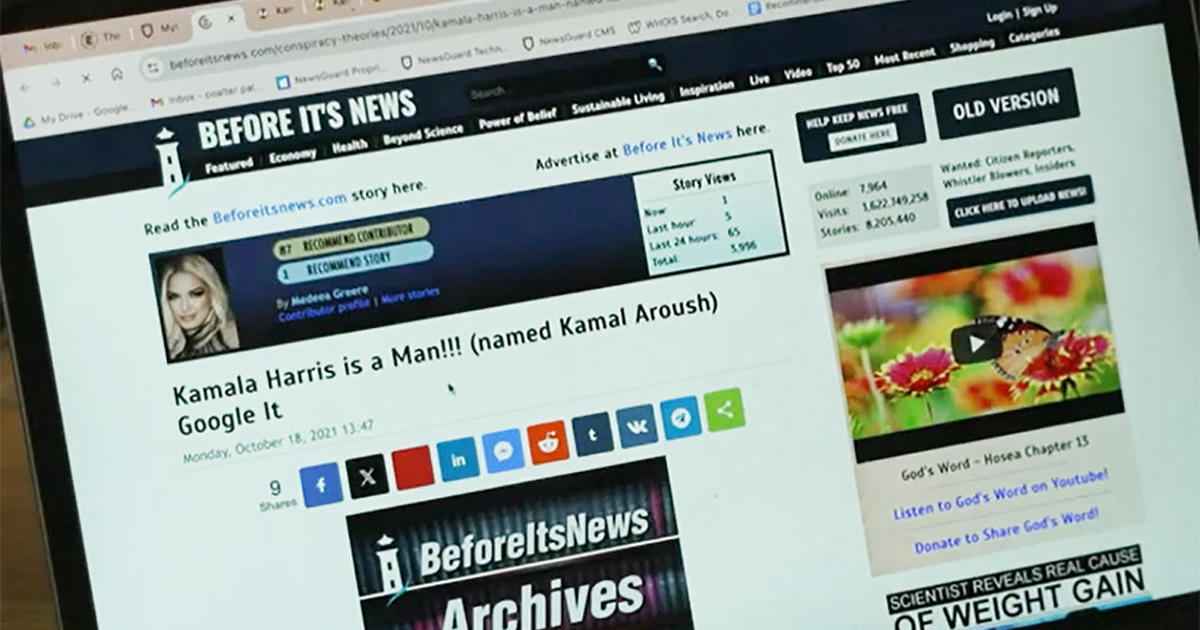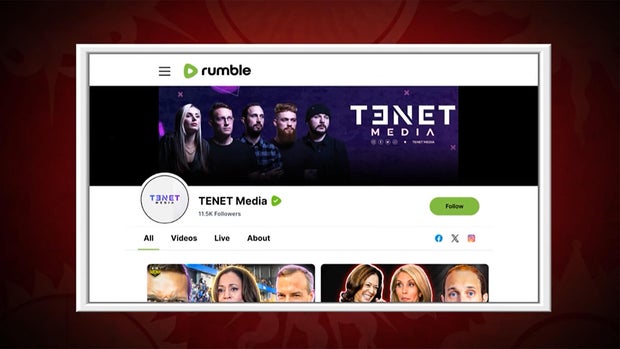We live in an age of alternate facts. More and more Americans are getting their information almost entirely from outlets that echo their own political point of view. And then, of course, there’s social media, where there are few (if any) filters between users and a wide world of misinformation.
For example: On July 13 a sniper came within inches of assassinating Donald Trump as he addressed an outdoor rally in Pennsylvania. Within minutes, social media was alive with uninformed speculation. One woman posted, “Who did it? I bet you it was the government themselves. They’re all on the same side.”
Koppel said, “We have no idea who she is, she has no particular credibility. Why should I even care that she is out there?”
“Because she could potentially have an audience,” said journalist and author Steven Brill. “If the algorithm gives it steam, that could be seen by millions of people.”
And then on X (formerly Twitter), this message: “You’re telling me the Secret Service let a guy climb up on a roof with a rifle only 150 yards from Trump? Inside job.” That message has seven million views and counting.
Brill said, “We’re at a point where nobody believes anything. Truth as a concept is really in trouble. It’s suspect.”
The cumulative impact of the lies and distortions just keeps growing, such that Brill titled his new book “The Death of Truth.” “There are facts,” he said, “and it used to be in this world that people could at least agree on the same set of facts and then they could debate what to do about those facts.”
Knopf
But we’re losing our grip on any sort of shared reality. Brill’s company, NewsGuard, is attempting to put the brakes on. Its 40 or so staffers around the world identify and rate the credibility of online news and information sources.
It’s a finger in the dike, because there’s no price to be paid. Almost 30 years ago, the federal government decided that internet platforms were like the phone company. You can’t sue the phone company for what a caller might say in a phone conversation.
Brill said, “They inserted a three-paragraph section called Section 230, which said that these [internet] publishers would not be responsible for anything that was published in their chat rooms.”
Instead, it left the internet essentially without any enforceable rules. Social media companies exercise only limited control, permitting lies, fake news and intentionally divisive content to proliferate.
The torrent of allegedly Moscow-backed content provoked an angry reaction from the U.S. this past week.
CBS News
But most of the damage is home-grown, from national and supposedly local outlets. “There are more fake news sites posing as legitimate local news in the United States than there are news sites of legitimate local newspapers,” said Brill. “There is no monopoly on virtue from either side here. Just to take an example, the most effective fake local news sites are financed by liberal political action committees. And they’re sort of especially self-righteous about it. When I interviewed them, they basically said, ‘Well, the other guys do it, so we’ll do it.’ But it’s undermining democracy.”
And then, Brill points out, we’re just beginning to come to terms with the full potential of artificial intelligence. Note that none of these images is real:
CBS News
Brill said, “It disorients everything, because you don’t know if something is a hoax, or is political propaganda, or is a deep fake. You just don’t know what to believe.”
Koppel asked, “In the environment you describe, is it possible for us to have a clean, fair, universally-acceptable election?”
“Your last condition is the one that is, I think, impossible – universally acceptable,” Brill replied. “Forget universally, even modestly acceptable. I have a real fear that one way or another, regardless of the outcome, that the chaos and the disbelief and anger that’s going to prevail on November 6, the day after the election, is really going to put our country to the test.”
READ AN EXCERPT: “The Death of Truth” by Steven Brill
For more info:
Story produced by Dustin Stephens. Editor: Ed Givnish.
See also:


